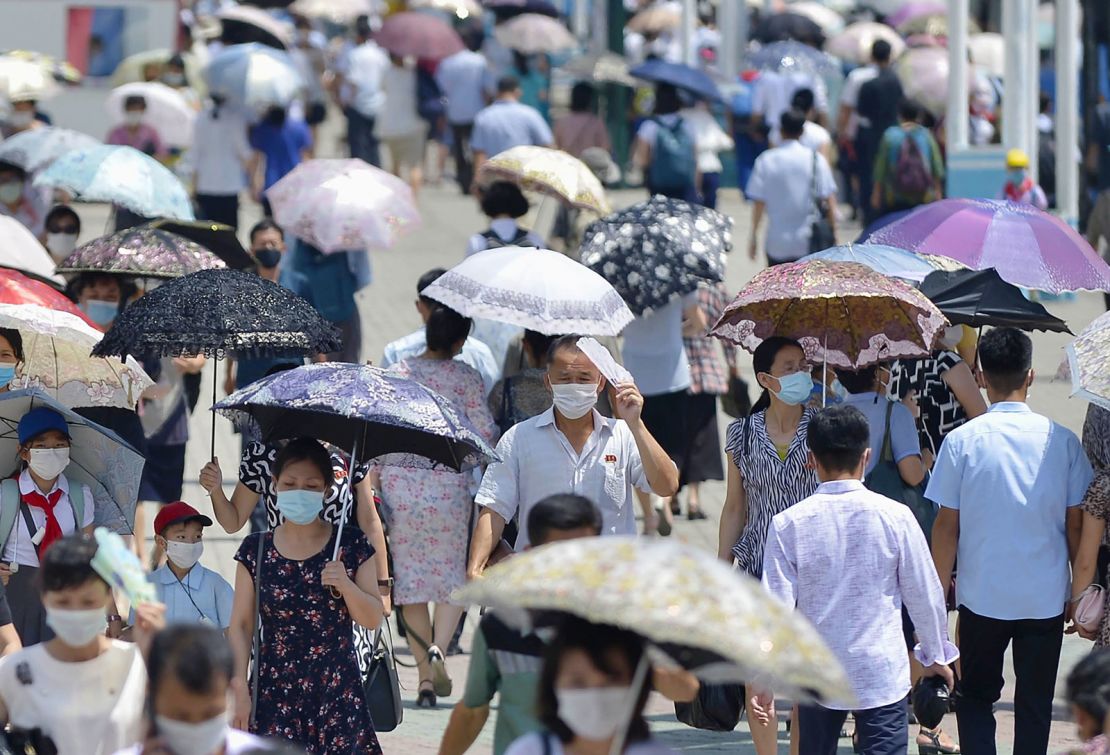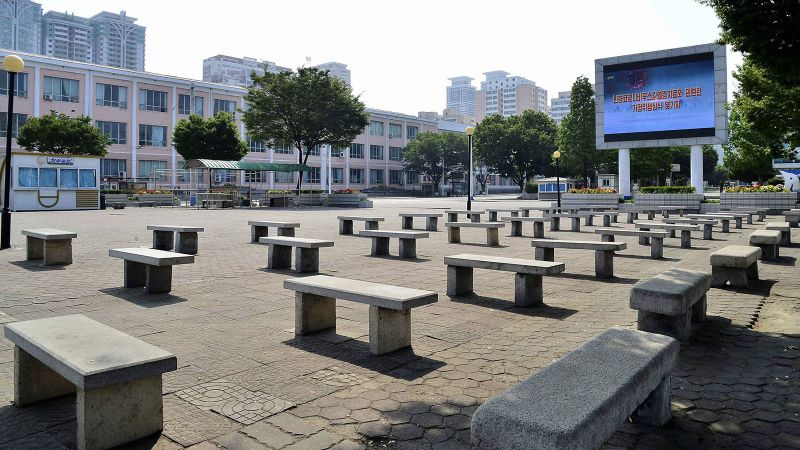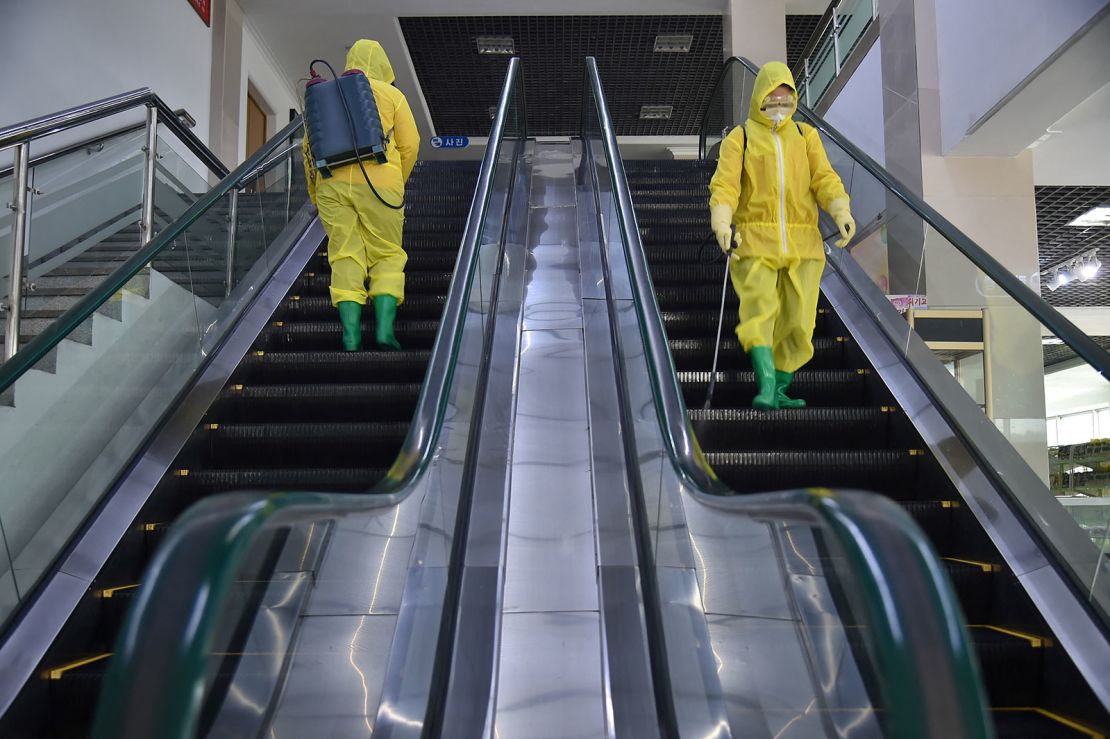CNN
—
For the first time since the global outbreak of Covid-19, researchers claim to have pierced North Korea’s ironclad information blockade to reveal how some ordinary citizens endured the pandemic.
While Pyongyang insisted for more than two years that not a single case had breached its hermetically sealed borders, a new report paints a far darker picture, of a deadly wave of largely untreated illness that swept the country, but was barely talked about.
The 26-page report also details testimony of deaths by counterfeit or self-prescribed medicine, and official denial leading to a culture of dishonesty.
“Doctors were lying to the patients. Village leaders were lying to the party. And the government was lying to everybody,” said Dr. Victor Cha, one of the report’s lead authors.
Released by the Washington-based Center for Strategic and International Studies (CSIS) in partnership with the George W. Bush Institute, the paper is based on 100 in-person interviews conducted discreetly inside North Korea between September and December 2023.
The testimony – gathered through informal, conversational methods known as “snowball sampling” – span all nine provinces and the capital Pyongyang. The result is what the authors describe as “arguably the first glimpse” inside the country’s most extreme period of isolation in modern history.
Snowball sampling is a recruitment method often used when studying hidden or hard-to-access populations. Researchers begin by identifying one or two trusted participants, who then refer them to others in their networks. Over time, the pool of participants “snowballs,” growing through word-of-mouth and personal trust.
While it lacks the scientific rigor of more conventional surveys, this method is often the only way of getting raw, subjective testimony from people living in repressive and totalitarian states, such as North Korea.
Cha, a former White House adviser and Korea Chair at CSIS, said the findings were evidence of “a total failure on the part of the government to do anything for the people during the pandemic.”
“Everybody was effectively lying to everybody during the pandemic,” he said. “Because of a government policy that said there was no COVID in the country. When they knew there was.”
Cha said Pyongyang’s policy of denial didn’t just attempt to deceive the outside world – it forced North Korea’s more than 26 million people into mutually enforced silence.
When North Korea closed its borders in early 2020 – as the virus made its way across the globe, on its way to infecting and killing millions – state media claimed it had kept the virus out entirely; no infections, no deaths. The world was skeptical. But the regime’s total control over borders and information made independent verification nearly impossible.
Two years later, North Korean television aired scenes of a military parade in Pyongyang. Crowds filled Kim Il Sung Square. Masks were scarce. Not long after, reports of a mysterious “fever outbreak” began appearing in state media. By early May, Pyongyang confirmed its first Covid-19 case. Three months later, it declared victory – claiming just 74 deaths out of nearly 5 million “fever” cases.
But according to the new survey, Covid-19 had by that point been circulating widely inside the country for at least two years.
Ninety-two percent of respondents said they or someone close to them had been infected. Most said 2020 and 2021 – not 2022 – were when outbreaks were at their worst.
“Fevers were happening everywhere, and many people were dying within a few days,” one participant reported. Another, a soldier, described a military communications battalion in which more than half the unit – about 400 soldiers – fell ill by late 2021. In prisons, schools, and food factories, respondents described people collapsing or missing days of work due to fever.
Even under normal conditions, the country’s isolated and underfunded healthcare system struggles to meet the needs of its people. But a pandemic-level event, coupled with official denial and an initial refusal to accept foreign vaccines, left people dangerously exposed, the report claims.
With virtually no access to testing, diagnoses came from Covid-19 symptoms that most of the world had grown familiar with: fever, cough, shortness of breath. Some respondents said even these symptoms were taboo. One woman recalled being told by a doctor that if she said she had those symptoms, “you will be taken away.” Another said bluntly: “They told me it’s a cold, but I knew it was COVID.”
In place of official care, citizens turned to folk medicine: saltwater rinses, garlic necklaces, even opium injections. One woman said her child died after being given the wrong dosage of adult medication. Another respondent described neighbors overdosing on counterfeit Chinese drugs. In total, one in five respondents reported seeing or hearing of deaths due to misuse of medication or fake pharmaceuticals.
Protective gear was nearly nonexistent. Just 8% of respondents said they received masks from the government. Many made their own, reused them, or bought them at black-market prices. One mother said her children had to sew their own because adult-issued masks were too big.

Cha says the failure was not just in what the government withheld, but in how it blocked the kind of grassroots survival that had helped North Korea’s “resourceful” citizens endure past disasters – including the 1990s famine, known inside the country as the “Arduous March.” That crisis gave rise to private marketplaces, which emerged as a lifeline when the state-run ration system collapsed. During the pandemic, however, those markets were shut down – officially to contain the virus, but also, Cha suggests, to limit the spread of information.
“They didn’t allow the people to find coping mechanisms,” he said. “Just shut them down, quarantine them, lock them down – and then provided them with nothing.”
The suffering extended beyond illness. With internal travel banned and markets shuttered, food shortages became acute. Eighty-one percent of those surveyed said they faced hunger. Respondents spoke of trying to survive quarantine periods with no rations, no access to medicine, and no way to seek help.
The rationing system, long unreliable, collapsed entirely under the weight of the lockdown. “If you didn’t have emergency food at home, it was really tough,” one soldier said.
Eighty-seven percent of respondents said they had no access to Covid tests at any point in the pandemic. Fewer than 20% received any vaccine — and most of those were administered only after Pyongyang acknowledged the outbreak in 2022 and accepted limited Chinese assistance. Soldiers reported receiving three shots as part of a campaign later that year. Civilian respondents described group vaccinations administered at schools or workplaces – months after the rest of the world had rolled out full vaccination programs.
Even the basic act of reporting illness became a risk. According to the report, local clinics and neighborhood watch units were required to report cases to central authorities. But only 41% of respondents ever received any information about those reports. Most said the results were either never shared or filtered through rumor. One respondent said: “I realized that serious illnesses and deaths were not reported because they were told not to call it COVID.”
This system of denial created what Cha calls a “double lie”: the government lied to its people, and the people lied to each other and to their government – each trying to avoid quarantine, censure, or worse.
The survey also documented a deep well of frustration with the regime’s response – and its propaganda. One participant said: “Our country can build nuclear weapons, but they can’t give us vaccines.” Others noted the contrast between their conditions and what they heard about other countries: free testing, access to medicine, the ability to travel.
In one of the report’s most striking findings, 83% of respondents said their experience did not align with what the government or its leader Kim Jong Un told them. More than half said they explicitly disbelieved the regime’s Covid-related announcements.
“When I saw the Supreme Leader touting his love for the people, while so many were dying without medicine,” one respondent said, “I thought of all the people who didn’t survive.”



